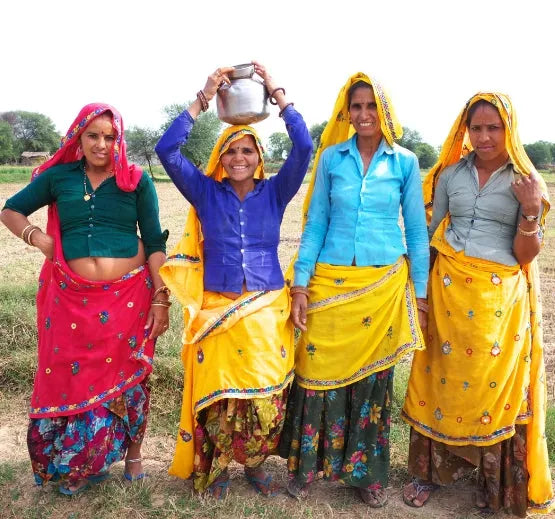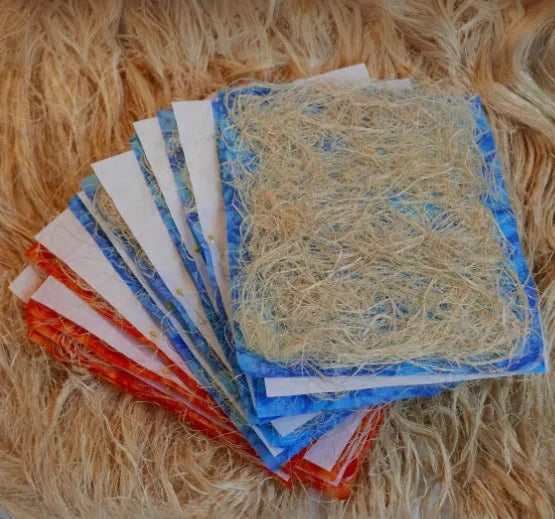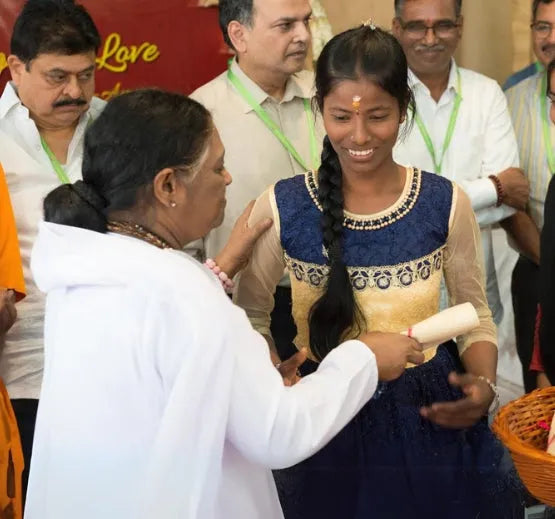Price :
QTY :
CART TOTALS :
There are items
in your cart
Total Price :
Your shopping bag is empty
Go to the shopWe chose the name Saukhyam for our reusable pads because we believe menstruation has been undervalued and ignored for too long. Women give birth to every human being and menstruation makes that cycle possible. When you switch to our beautiful reusable pads, you are celebrating the life cycle and honoring your place in it.
SWITCH NOWBack in 2013, far away from the hustle and bustle of the metropolis, volunteers from the Mata Amritanandamayi Math were traveling to some of India’s most remote and rural areas. The Math had adopted 101 such villages in 20+ states of India, with the aim of making them self-reliant.
When interacting with the villagers and studying their problems, especially those of women and girls, the volunteers understood the importance of providing access to menstrual hygiene products at affordable prices. Solve this one problem, and so many more could automatically be solved, they intuited. Young girls were dropping out of school in large numbers, at menarche. Women faced reproductive health issues and even were prone to cervical cancer due to unhygienic practices for menstrual hygiene that they followed.


It is not widely known but it is true. Just like trees are cut to make paper, trees are also cut to make the absorbent material in 99% of disposable pads made and sold globally. This is called cellulose fiber.
While on the one hand we wanted more menstruators to have access to sanitary napkins, we did not want to promote a solution that needed for more trees to be cut. A funded research project of the Department of Science and Technology of the Government of India at Amrita University set out to find alternatives. Banana fiber proved to be an excellent choice.
Banana fiber can also be thought of as a type of cellulose fiber. However, it is obtained from agricultural waste and no trees are cut to extract this fiber. India is the largest producer of bananas in the entire world. This fruit tree has a unique property - it fruits only once. After the fruit is obtained in 8-9 months, the tree is cut for it will never bear fruit again
Mata Amritanandamayi Devi or Amma as she is fondly known, is revered all over the world as a spiritual and humanitarian leader. The charitable organization that Amma has founded, the Mata Amritanandamayi Math, has consultative status to the UN’s ECOSOC.
Amma took personal interest in Saukhyam right from the very start. When the team researched banana fiber, Amma guided that not disposable but reusable pads were to be made from this absorbent material. “Even though banana fiber comes from waste, it is far too precious to be used once and thrown away, Amma said.”
Amma was teaching the basic principles of sustainability. Nothing disposable, in the long run, can ever be sustainable.
When the pads were launched, Amma noted, “Banana fiber has therapeutic qualities and these should be researched.” There is anecdotal data from hundreds of users who relate stories of being relieved of period cramps. It is possible that banana fiber has anti-spasmodal qualities that help relieve the cramps. A research project is now ongoing at Amrita University to scientifically investigate this aspect.
READ MORE
Saukhyam reusable pads were launched in October 2017. The launch was preceded by a 3-year research and development period. Today they are sold online as well as provided at subsidized prices in rural and other low-income communities.
An estimated 5 lakh girls and women have made the switch, not only now enjoying a more wholesome period experience, but also significantly reducing their carbon footprint and the waste that they generate.
It is estimated that one menstruator that makes the switch helps prevent the emission of 5.8 kg carbon dioxide equivalent annually. Over their menstruating lifetime, the menstruator further eliminates over 100 kg of non-biodegradable waste.